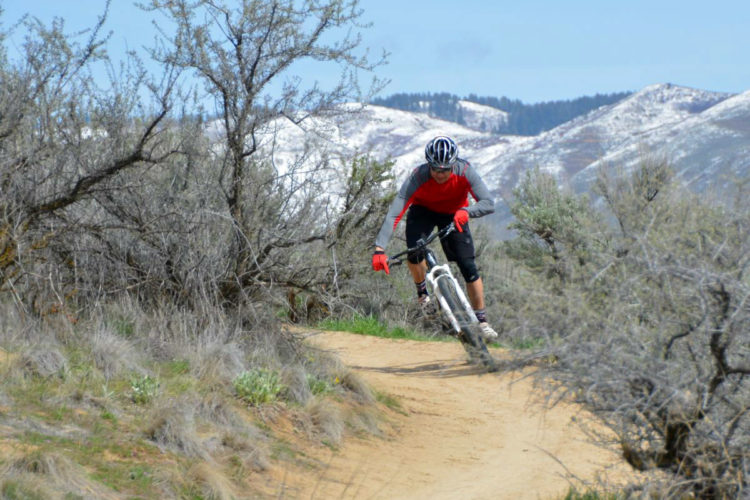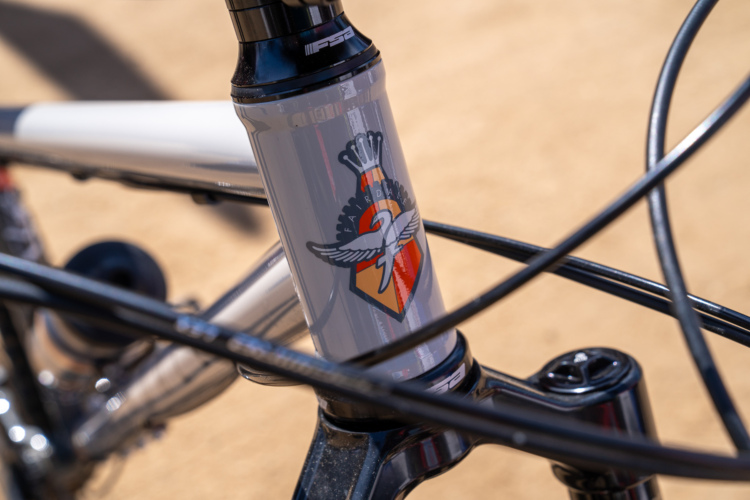
What makes a good training program good? Everyone wants to feel and perform their best, whether you’re aiming to win an endurance race or ride five miles for the first time. From nutrition to sleep, it all matters if you’re riding with a goal in mind. Even if you have a coach, constructing a well-rounded training regime requires a lot of self-education. Furthermore, the ability to distinguish good vs. bad information is invaluable, as the internet provides instant access to everyone’s expertise from every perspective imaginable. Throw in bias, topped off with marketing, and the whole shebang can simply be overwhelming.
Let’s look at supplements, for example. A new power player seems to pop up daily, but are the trends worth the hype? A lot of the “extras” aren’t all that necessary if you are good about the basics, yet some of them stick around for a reason. Unless you live in a cave (which some of us do) it is almost impossible to ignore the celebration surrounding cannabidiol (CBD) and its promise to alleviate symptoms and cure a wealth of health conditions. Many athletes are jumping on the bandwagon, using it as a recovery aid to combat inflammation and post-workout soreness. From protein powders to full-spectrum hemp tinctures and capsules, CBD is slowly proving itself helpful for a number of legitimate disorders, but is it useful as a training and recovery aid? Will it help healthy cyclists climb to new heights, or should it just be left in the dirt?
The short answer is that it’s complicated, and it really depends on your goal.
[see_also id=’222706′]
Some training and recovery basics
Let’s go through a quick and dirty rundown of training and recovery. The fitness status and experience of the individual will dictate the structure of any plan, as a novice athlete isn’t going to have the skills or base that a seasoned mountain biker will.
Next, a rider’s riding genre needs to be considered. A downhiller won’t train like an endurance racer, and the terrain will also differ. The rider’s goal will dictate the intensity and duration of each workout, quantity of each type of training session that is included in each block, and finally, the length of each block itself will need to be determined. Caloric intake and the type of calories needed to sustain each workout should be analyzed, along with what supplements will be used, if any.
Recovery is just as important as the above elements. You cannot train and gain if you don’t recover. Refueling adequately, sleeping enough, and preparing for the next workout are all essential aspects of a complete training plan. Recovery allows your body to adapt and move onward and upward toward your riding goal without risking burnout or overtraining.
While progressing through any training program, your body responds to the stresses of exercise by producing a number of important chemical signals that tell your cells to adapt and eventually make each session a little easier. CBD, like many other things, may assist in attenuating pain and inflammation, but it also may kill some important, exercise-induced messengers. Here are some things that we know.

When training, inflammation matters
Inflammation is a natural response to the stresses of exercising. After you ride, the worked muscle tissue produces several inflammatory biomarkers that tell the body to repair stressed tissue and synthesize protein. This is a normal, healthy response as long as you’re not overdoing it. Many cyclists get into a habit of taking anti-inflammatory medication after strenuous workouts to help alleviate pain. Some even think they are an ergogenic aid, which is partly on the table. However, not only are they putting a bandaid on what could be too much load during each session, but they are actually killing an important set of messengers.
A number of training studies have shown that non-steroidal anti-inflammatory drug use (NSAID) post-exercise may decrease protein synthesis by inhibiting the COX-PG pathway.
Similarly, CBD is in the spotlight for its ability to combat inflammation, and some studies have shown at least part of its mechanism to be similar to that of NSAIDs, inhibiting COX and LOX. Further, CBD inhibits interleukin-6 (IL-6) and tumor necrosis factor-alpha (TNF-a), both important inflammatory biomarkers involved in training adaptation.
So, does CBD also attenuate muscular growth and dampen long term gains? The jury is still out, as no training studies have been completed, but the concept does make a lot of physiological sense.

Antioxidants are anti-training (sort of)
What about antioxidant use during and after exercise? Aren’t free radicals bad? CBD is a potent antioxidant. Yes, free radicals and reactive oxygen species (ROS) are a source of cellular damage that over time may lead to the onset of chronic disease and cancer. And yes, CBD is such a potent antioxidant that it may prevent neurotoxic damage better than vitamins C and E. However, if you pop a bunch of vitamin C after a long ride, you are doing your body a disservice by killing another signal, and several studies support this notion. Is the same true for CBD?
Similar to the inflammatory scenario, ROS are a byproduct of exercise. The longer or harder you pedal, the more ROS your body produces. It does this in response to fuel breakdown, necessary to create usable energy that allows you to continue turning the cranks. Those pesky ROS actually signal your mitochondrial DNA to undergo biogenesis or reproduce. This is one very important way endurance is gained: two mitochondria can do double the work that one can if the workload stays the same, so the work becomes easier and more efficient.
Your body already produces enough antioxidants on its own to handle the stresses of exercise, and antioxidant levels adapt as you train. Supplements, which may include CBD, are not always better. Many studies support this claim, showing slower (and even zero) gains in endurance and VO2max improvements over time. You can read about many of these studies, here.

What if I’m not training? What if I just want to pedal? What if I am recovering from an injury?
If you’re pedaling to pedal and happy with where you are, then use all the CBD you want. The bottom line is that no one is stopping you from doing what you want to do for you. Just be aware of where information about CBD and cannabis is published, what the sources are, and how it is used.
If you are recovering from an injury, supplementing your regimen with CBD may actually be quite beneficial to help get you back on the bike. Not only does it help reduce inflammation, but it may also relieve pain associated with soft tissue and joint damage, as well as concussive and other closed-head injuries. For those suffering from chronic injuries, it may be a better choice than standard pain killers, especially opioid-based drugs. There is also a lot of evidence supporting CBD’s use as an anxiolytic (anti-anxiety) agent. To read more about the therapeutic value of CBD, check out this article.
What we don’t know yet
Unfortunately, there aren’t really any good training studies out there that investigate whether or not supplemental CBD will help or hinder training gains in healthy populations, let alone athletes. Most research that does exists centers around CBD’s use as a treatment for pathological conditions like epilepsy, neurotoxicity, and cardiomyopathies.
As social views and political agendas change over time, the ability to conduct training-focused studies will grow as CBD becomes more widely accepted. If you do choose to use CBD, the best advice is to do your homework and look for something that is organic and includes other essential phytochemicals from full-spectrum extract.



















